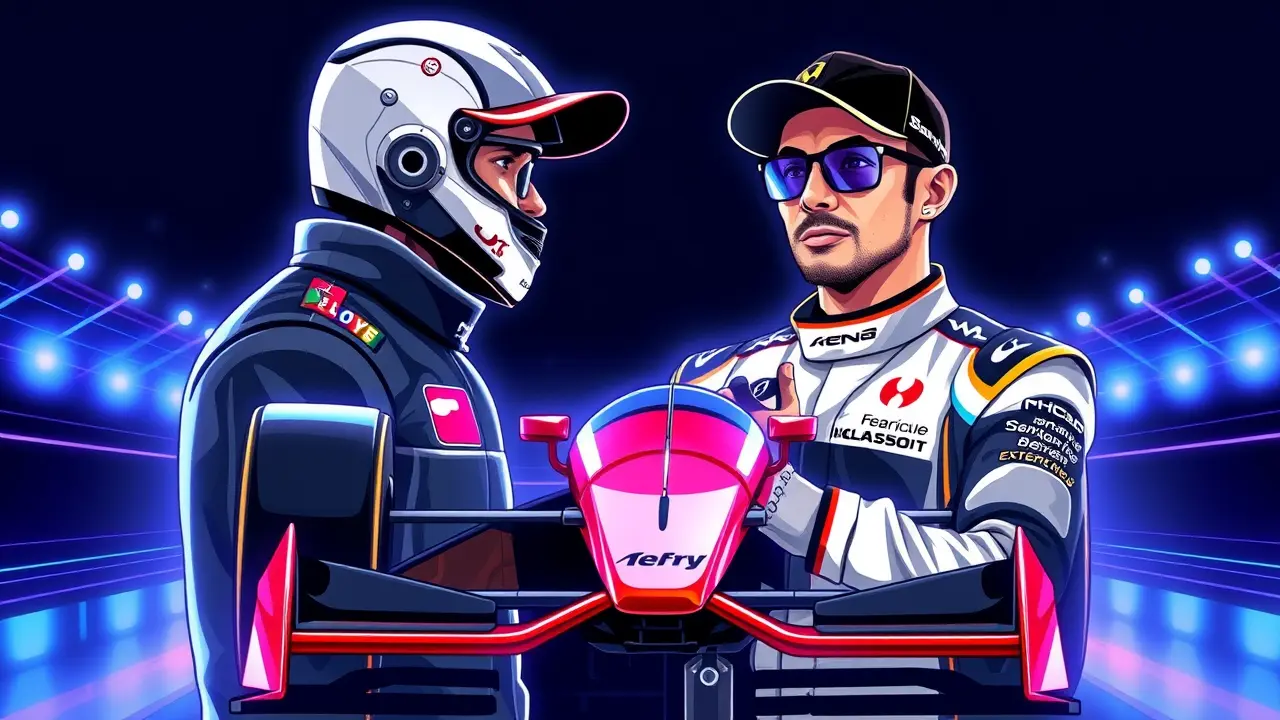Palou: McLaren Lost Nothing, Cites Alonso's Indy 500 Struggles
The high-stakes legal drama unfolding in a London courtroom between McLaren Racing and reigning four-time IndyCar Series champion Alex Palou has taken a fiercely competitive turn, with the Spanish driver deploying a devastatingly effective argument straight from the racing playbook: the legacy of his legendary countryman, Fernando Alonso. At the heart of the multi-million dollar lawsuit, where McLaren is seeking a staggering $20 million in damages for Palou's abrupt 2023 contract U-turn that saw him remain with Chip Ganassi Racing, is a fundamental dispute over a team's inherent value versus a driver's singular talent.McLaren's legal counsel, Paul Golding, painted a picture of an organization thrust into crisis, claiming the team was forced into painful sponsor renegotiations after failing to secure a replacement of Palou's calibre. But Palou, in a move reminiscent of a perfectly executed overtaking maneuver, countered with a cold, hard dose of racing reality, asserting that his decision was a pure performance calculus.He argued that McLaren simply wasn't—and arguably still isn't—a championship-caliber operation in IndyCar, and that no driver, not even the most gifted, can single-handedly elevate an underperforming team to the winner's circle over the grueling span of a season. To drive this point home with the force of a checkered flag, he invoked the iconic, yet ultimately fraught, Indianapolis 500 campaigns of two-time Formula 1 World Champion Fernando Alonso, a narrative arc that serves as a perfect case study in machinery trumping mastery.Palou meticulously detailed Alonso's 2019 qualifying failure with McLaren, where the F1 titan was shockingly bumped from the field by a rookie, Kyle Kaiser, a result that sent shockwaves through the motorsport world. He then contrasted this with Alonso's near-victorious 2017 debut with the powerhouse Andretti Autosport team, a run that was only thwarted by a mechanical failure, and his underwhelming 21st-place finish upon returning to McLaren in 2020.This stark comparison, between a competitive car and an uncompetitive one, is the kind of analytical deep dive that football fans use to compare eras; it’s like arguing whether Lionel Messi could have won the Ballon d'Or playing for a mid-table club—the individual genius is undeniable, but the system's capability is the ultimate limiter. Palou’s testimony essentially posits that he saw himself in a similar predicament: joining McLaren would have been akin to Alonso's 2019 effort, a brilliant driver hamstrung by an unprepared package, whereas staying with the proven, race-winning infrastructure of Chip Ganassi was the equivalent of Alonso's 2017 Andretti ride—a guaranteed shot at glory.This isn't just a contractual dispute; it's a philosophical battle over the very essence of motorsport. Is a team built by its star driver, or is a driver made by his team? History is littered with examples that support Palou's thesis.Even the great Ayrton Senna required a dominant McLaren-Honda to secure his championships, and Michael Schumacher’s legendary status was forged not just by his skill but by the meticulous world-beating machine he helped build at Ferrari. The outcome of this case could reverberate far beyond the specific figures on a balance sheet, potentially influencing how driver contracts are structured and how liability is assessed when a superstar athlete decides a team's trajectory isn't aligned with their own ambition.For McLaren, a brand synonymous with F1 greatness but still finding its feet in the American open-wheel series, the allegation that they are not a top-tier IndyCar operation is a painful public relations blow, one that could impact future driver recruitment and sponsor confidence. For Palou, it's a bold gambit that stakes his professional reputation on the validity of his sporting judgment. The London courtroom has become an unlikely paddock, where arguments about lap times and car performance are being weighed by a judge, and the final verdict will determine not just who pays whom, but will also deliver a powerful judgment on what truly drives success in the relentlessly competitive world of elite motorsport.
It’s quiet here...Start the conversation by leaving the first comment.
© 2025 Outpoll Service LTD. All rights reserved.
